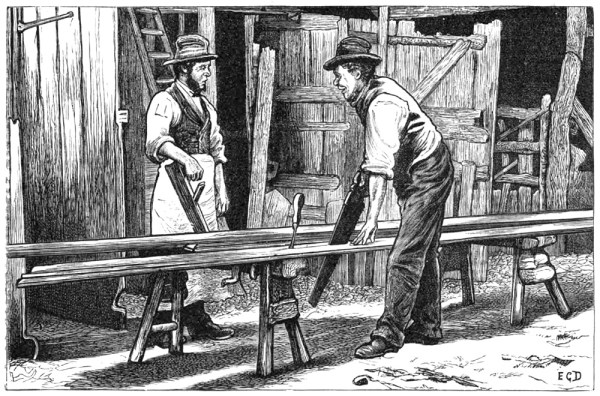
One of the greatest evils of the present day is the unfitness of the average workman for anything but mere routine work. Such a thing as a knowledge of the general details of a craft or trade, is almost unknown. The workman, from boyhood up, has become so accustomed to the pursuit of one idea; one branch of the trade, that he strives only for mediocre excellence in that one branch, and has no ambition beyond that of acquiring a sufficient knowledge of the particular line of business in which he is engaged to insure him the maintenance of his situation.
The average workman, if he has the intelligence, has not the ambition to perceive that the skilled and careful man, familiar with all the details of the business, is the one who is most likely to retain the good will of his employer, and fails to perceive that when the hard times come, the man with the limited knowledge of his business is the first to be dropped from the payroll, while his more competent brother, when work fails in one branch of the business, can be profitably put at work in another.
Every man should thoroughly master all details of his business, and some day, he can not tell how soon, the opportunity will come for him to better his condition and take advantage of those acquirements which have come to him in the days of his apprenticeship.
American Machinist: “ ‘Hard times’ are apt to be hard on nice, delicate workman. Perhaps business gets so dull that a nice tool maker must go to work repairing old engines. For a time he uses tools tenderly. He is as careful with them as of old. It makes him wince to see the boys throw nice tools into a box, and then dump into a drawer or on the bench. Soon our man gets hardened. He begins to ‘don’t care,’ and quickly gets as bad a tool smasher as any of the gang. ‘Hard times’ not only spoil business, but they sometimes spoil the mechanic as well.”
Every word of the foregoing is true. The “hurrah” and “rush ” of American practice in the workshop or on American buildings, is surely destroying skillful workmanship. To do good work requires time, and no man can make a good honest piece of work with the lash of the foreman pressing him on to “hurry up,” “hurry up.” The writer of this has known of more than one case, where first-class workmen have been elbowed out of existence, by men who did not know half so much, but who have the fatal knack of always appearing to be in a hurry.
In these days—in the building trades at all events—there seems to be no incentive to become a good workman. It is not the quality but the quantity of work a man can do that gives him value in the eyes of his employer. All this has a tendency to make indifferent workmen, and to fill up the ranks of the building trades with half trained men, botches and pretenders.
The Builder and Wood-Worker – October & November, 1885
—Jeff Burks